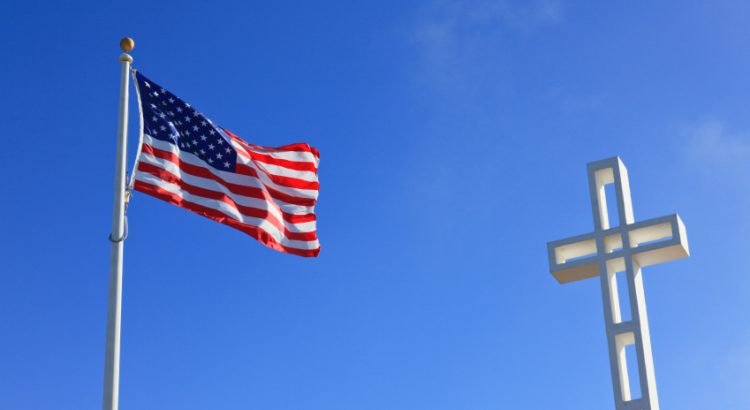President Trump has vowed to follow a radically new approach to foreign policy that jettisons the costly mantle of moral leadership in favor of America’s most immediate economic and security interests. But it’s unclear how the crises in Syria would produce a significant shift in policy. “They have not yet figured out what they are trying to do,” says political scientist Peter Feaver. “What looks like recalibration might be multiple voices.”

How to Solve Controversial Issues Like Climate Change
“The lesson for all leaders: Start with problems, not solutions. People will discount the evidence if they don’t like the fix you are proposing. This is particularly important in today’s extremely fractured world. The first step in moving forward during such great polarization isn’t offering solutions, it’s agreeing a problem exists,” writes Fuqua School Dean Bill Boulding.
Read More on LinkedIn
The U.S. Response to Syria and North Korea
Law professor Charlie Dunlap shares insights on Trump’s foreign policy challenges. “I think the jury is still out as to how exactly Trump’s ‘America first’ stance will influence foreign policy. My bet is that it will be very situation-specific, and in the case of North Korea, it won’t differ, initially anyway, too much from the Obama approach except to say that Trump may believe he can better motivate China to help with a solution than his predecessor was able to do,” he says.
Read More at Duke Today
Gerrymandering: America’s Most Dangerous Maps?
Ever wonder why congressional districts are shaped so oddly? The answer is gerrymandering: Drawing districts in part to sway election outcomes. State legislators across the nation are redrawing their electoral boundaries. But who, exactly, does gerrymandering benefit? And does it deserve the bad rap it gets? Political scientist Michael Munger helps explain the history and process of gerrymandering. “The United States, perhaps uniquely, has wrestled with this in a way most counties don’t have to deal with,” he says.
Listen on NPR’s ‘1A’

Being the Church in the Time of Trump
“Christians in America have played this game for so long now and with so many half-baked strategies that they can no longer differentiate between America and God, something Scripture calls idolatry. Once Christians zero in on the state as the locus of political activity, they become blind to those myriad other ways the church might politically act in the broad horizon of democratic possibility,” writes Stanley Hauerwas, professor emeritus at Duke Divinity School.
Read More at the Australian Broadcasting Corp.
NC ‘Compromise’ on HB2 and LGBT Discrimination
“Many activists working on the ground in North Carolina for HB2’s repeal see the compromise as a disgrace,” says Gabriel Rosenberg, a professor of gender, sexuality and feminist studies. “Gov. Cooper and the state Republican Party are horse-trading with the basic human rights of their constituents. … The compromise takes basic rights from LGBTQ citizens and gives them access to accommodations that never should have been denied in the first place. So it’s a give and take just like when a bully steals your wallet but lets you keep bus fare home.”

North Carolina’s HB142: Repeal? Compromise? What Does it all Mean?

Is Repeal of Bathroom Bill a Good Deal for Anyone?
The NCAA’s deadline was “the symbolic hammer that finally worked,” says public policy professor Pope “Mac” McCorkle, a former lawyer who has worked as a policy consultant for North Carolina’s representatives. He says the deal worked out Thursday looks more like “a plea bargain. “The NCAA isn’t liberal or conservative (by nature) so it became kind of the default judge in this case.”
Read More in The International Business Times
Bathroom Law Repeal Leaves Few Pleased in North Carolina
Public policy professor Pope “Mac” McCorkle called the deal an “awkward compromise.” He says it would ultimately be judged by how many of the sports events, entertainers and businesses who had turned on the state would eventually change their minds. Law professor Jane Wettach says that beyond schools, few institutions had ever policed people’s bathroom choices. “Which is what made the law sort of symbolic,” she says, referring to House Bill 2.
Read More in The New York Times
North Carolina’s Bathroom Bill Repeal Won’t Bring the NCAA Back
“The state could lose more than $3.76 billion over the next 12 years due to boycotts and lost business opportunities stemming from the bill, which takes aim at LGBT anti-discrimination policies, according to an Associated Press analysis. … It will take strong action to convince national and global organizations that have cut ties with the state to return …,” writes Dorie Clark, an adjunct professor at The Fuqua School of Business and a former presidential campaign spokeswoman for Howard Dean.
Read More in Fortune
NC’s Love of College Sports Spurred Move to Repeal Bathroom Law
“I think the N.C.A.A’s view had become a barometer for people judging the economic development impact,” says Pope “Mac” McCorkle, a former state Democratic consultant who is now a professor of public policy at Duke. “It locked in people’s view that this is a mess, and the way we would know the mess had cleared up is the N.C.A.A.”
Read More in The New York Times
Is Fight to Repeal/Replace Affordable Care Act Dead?
Dr. Kevin Schulman says President Obama is often blamed for skyrocketing health care costs even though it long preceded the Affordable Care Act and affects everyone, not just those who have insurance through the law. Yet Schulman doesn’t see any serious attempts to address that core issue among the health care policy proposals floating around Washington. “It doesn’t seem like a lot of people on the Hill have agreement about what the problems are,” he says. “Coming to a consensus on a solution is even more challenging. I’m not optimistic that they can get there.”
Read More on PolitiFact

